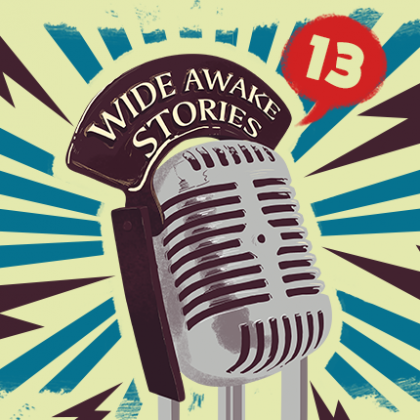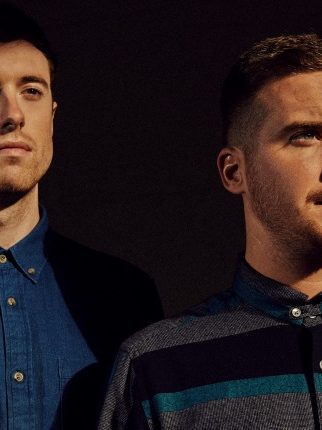Pete Tong on Why L.A. Is the Capital of Electronic Music
Pete Tong is no mere radio DJ. He’s quite possibly the most influential DJ in the universe. From his BBC Essential Mix to his own club and festival DJ bookings to his consulting, music supervision, A&R and music conferences, the dude is everywhere. The Londoner has called Los Angeles home for the past several years, but now he’s moving his famed Essential Mix to the Left Coast as well, as the axis of dance music power has shifted to Los Angeles, he argues.
In advance of his January 22 Essential Mix with Richie Hawtin (and a ton of special guests), I spoke with Tong about Los Angeles as a magnet for electronic musicians of all stripes and why the film and television industries haven’t been able to produce a meaningful portrayal of clubbing and festival culture yet.
Why L.A.? And why is it important for you to do it now?
Obviously, I have been on Radio 1 for a while, and we’re always looking to tell new and interesting stories around electronic music. I moved to Los Angeles in 2013 permanently, and I’ve been doing the show in L.A. and occasionally going back to London and doing the show live. Largely, it gets done from my studio in Hollywood now. It’s been well documented that Los Angeles has become this kind of hotbed of creativity for the electronic community, with more and more artists, producers, DJs and musicians moving to California—and Los Angeles in particular—with more and more collaborations going on.
When you look at it from a Skrillex and Diplo perspective, it’s not only are they thriving here because of everything going on electronic, but it’s also a center of excellence for songwriting and production in general. It’s probably as big as anywhere in the world, if not the leading place. So, I think that’s one of the reasons to come and actually put the radio station on the ground and reflect a bit of that and talk about that in a face-to-face sort of situation.
The other thing is California’s role in the events and clubbing story, that really, the city and state have been so important in terms of the development of the live business—of course which Insomniac has been the leader of, or played a principal role in. So, I think if you look at the rise over the last seven or eight years, you talk about why dance music, electronic music, EDM—whatever you want to call it—eventually clicked in America, is that the music broke onto the radio thanks to the likes of David Guetta, Avicii and whoever.
The roots were really embedded this time through the success of events like Electric Daisy Carnival, and all of the events Insomniac has been involved in, and all the other promoters as well. It was a combination of the music becoming more popular because of exposure on the radio, but the actual groundwork and foundations are in place.
But it wasn’t in the ‘90s when the electronic explosion happened—or was meant to happen—after the rave scene in the UK, with all the bands like the Prodigy, Orbital, Chemical Brothers coming over here for the first time. But it never really stuck once the bands went away, because the fanbases weren’t in place. This time, they were.
My question is, really, why haven’t we come and broadcast from L.A. before? But that’s due to money and politics. The BBC is an amazing institution in the UK. It’s a public broadcasting station. But they haven’t necessarily got the funding or the money to justify flying all around the world all the time. So, I think it’s a testament to the fact that I’ve been here a few years now and keep banging on the same doors, saying, “We should come and do a show in Los Angeles because it’s an amazing city.” I finally managed a way to do it.
You’ve been coming for L.A. for years to play, though, right?
In the multiple hats I wear, years ago—I would come to L.A. from the record business perspective. In the early days—like, the late ‘90s—I started coming here as a DJ, playing things like Circus. There were some amazing clubs in L.A. then. I would come once or twice a year. My relationship with L.A. grew, grew, grew.
The principal reason I moved is because of working behind the scenes with WME (William Morris Endeavor), where I had become a partner in their business and started an electronic agency. The company was getting so exciting and growing so fast, but the center of the music department is in L.A. And I thought this was a great opportunity, and I think to make the most of it, I wanted to actually be in L.A. Which happened to coincide with the boom of the whole electronic music scene in the US. I travel the world and get to go to some amazing places, but I never actually lived anywhere else outside of London. There was never a good time to immigrate, and eventually I found a window of opportunity in 2013 where I could. It was actually playing at EDC 2013—it was June—that I managed to find a house on that visit. I’m in Hollywood.
Why has there been so much trouble trying to make a film or TV show in the EDM/electronic world?
I work with WME, but I’m not an agent. I’m kind of doing A&R/talent acquisition and development and giving the agency a different perspective. But the other major role I fill is looking for other opportunities for the artists in the world of electronic to interact in other media. I’ve been very public about it, but it’s a massive ambition of mine to get a television series or a film that makes it out there that more closely relates to our culture. In the same way that hip-hop has successfully done over the past 15 or 20 years, it’s very tough doing it from the electronic perspective. Disco was way more successful than we’ve been.
It’s a head-scratcher, you know, as to why it’s been so hard. And I’m still working on it. We finally got a film with Netflix called XOXO, which will be going up on their service in the summer. It’s more than greenlit; it’s shot. I’m working on the music for that behind the scenes. That’s a step, but I’d still love to make a television show that means as much to people as Breaking Bad, or something that somehow represents our culture. It’s on the bucket list.
And We Are Your Friends—I haven’t actually seen it. As I sit here today, I keep meaning to watch it everyday. I’ll say one thing for it: The most people who were prepared to knock it and say it must be shit for Zac Efron to be in it—the most people I know in the business have subsequently said it’s not that bad. But it was killed off; it was this scary thing. A few misjudgments along the way, and social media made it stillborn. It was killed before it had a chance, just because the perception it created was negative. I totally sympathize with Working Title and the people that made it. And Max Joseph is not a bad guy; he’s a smart director. But I can imagine the conversations that went down during the setup of that film, that they might not have even got it made without Zac Efron. But that very fact and the way that spun out there seemed to undo them.
It seems like the filmmakers were interlopers—which you can’t help, I guess. But I’ve also heard it’s not that bad, hits the same notes as Saturday Night Fever. It seemed like the movie took itself too seriously.
In the UK, films like Human Traffic and It’s All Gone Pete Tong seemed to nail it. They weren’t massive commercial successes at the box office, but they both seem to resonate with audiences over time. Not a day goes by that someone doesn’t stop me in the street and tell me how much they loved either one of those films, which goes to show we did something right. And we totally did it with a sense of humor.
What about the Calvin Harris project at HBO?
That’s not going anywhere fast.
I think the best way to depict DJ culture is with endearing humor, making fun of the whole scene.
That’s what we’re doing with XOXO. It’s set in L.A.—directed by a guy, Chris Louie, who grew up as a raver, who grew up going to Pasquale’s events. He’s a really cool guy who’s totally of the people, for the people. He was a DJ and actually was on the dancefloor in the ‘90s, so he has as good a chance as any for getting the tone right.
I think someone is going to eventually find a way to do it right.
That’s why I want to bring Radio 1 out here, celebrate L.A., talk about it. It’s great that we’ll be able to do it live from Exchange with Richie Hawtin.
Can you tease who the special guests will be on the 22nd? It said there was some TBA on the lineup.
We’ve got BPM going on in Mexico, and everyone is very busy. I’m gonna badger people like Calvin Harris until the last minute. All these people’s schedules can change last minute, but we’ll see.
For our LA readers, BBC Radio 1 Essential Mix Live ft. Richie Hawtin & Pete Tong is happening at Exchange LA on Friday, January 22.
Follow Pete Tong on Facebook | Twitter




